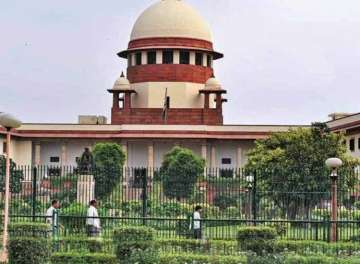A senior law ministry functionary on Friday said that the government would oppose the pratice of 'nikah halala' in Supreme Court, when the apex court examines its legal validity in the coming days.
The government believes that nikah halala, which allows a man to remarry his divorced wife, is against the principles of gender justice. We had made our stand clear in the top court on the issue, the functionary said.
But the top court had then decided to only take up the issue of instant triple talaq and consider the issues of nikah halala and polygamy separately.
In March, the Supreme Court had issued notice to the Centre on the issue of nikah halala and polygamy.
"The stand is the same ... the Union of India is opposed to the practice. It will be reflected in the Supreme Court," the functionary said.
The apex court had last year declared instant triple talaq as unconstitutional. The government had later brought a bill to make triple talaq a penal offence.
The bill, passed by the Lok Sabha, is pending in the Rajya Sabha. It makes instant triple talaq illegal with up to three years in jail for the husband.
The Muslim Women (Protection of Rights on Marriage) Bill would only be applicable on instant triple talaq or 'talaq-e- biddat'. It gives power to the victim to approach a magistrate seeking "subsistence allowance" for herself and minor children. A victim can also seek the custody of her minor children from the magistrate.
Under the draft law, instant triple talaq in any form -- spoken, in writing or by electronic means such as email, SMS and WhatsApp -- would be illegal and void.
The legal validity of nikah halala will now be examined by the Supreme Court. A Constitution Bench of the top court will hear four petitions challenging the legal validity of the practice.
Under nikah halala, a man cannot remarry his former wife unless she marries another man, consummates the marriage, gets a divorce and observes a period of separation period called 'iddat'.
(With PTI inputs)
Latest India News
